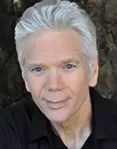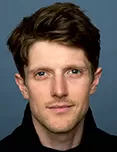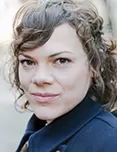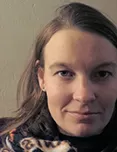By Rachel Bonds
Directed by Mike Donahue
Tom has fled to the basement to escape the end of the world. On the first floor, Vivian makes the mistake of saying what all the women in the office were already thinking. Randy’s smoking dope on 2, Farrah’s waterboarding Yuri on 7 and the toilet explodes on 4.
In spite of looming coyotes and apocalyptic billboards, everyone does their best to get through another day. Life is short, after all – whether or not the world’s actually ending.
This world premiere comedy by up and coming playwright Rachel Bonds explores the relationships we take most for granted – those with whom we work every day – and asks us how well we know the people we share a break room – and maybe even a lifetime – with.
Run time: Approximately 1 hour 45 minutes
Rachel Bonds’ plays have been developed or produced by South Coast Rep, Ars Nova, Manhattan Theatre Club, McCarter Theatre, Roundabout Underground, Atlantic Theater Company, Williamstown Theatre Festival, New Georges, Ensemble Studio Theatre, Actors Theatre of Louisville, Studio Theatre, SPACE on Ryder Farm, The Arden and New York Stage & Film, among others.
Her plays include: Curve of Departure, a commission from South Coast Rep, soon to be workshopped at the 2016 Pacific Playwrights Festival with Mike Donahue; Five Mile Lake, winner of the 2013 L. Arnold Weissberger Award from the Williamstown Theatre Festival, which received its world premiere at South Coast Rep, directed by Daniella Topol, and its east coast premiere at The McCarter in May 2015, directed by Emily Mann; ###em/em### her commissioned play for Studio Theatre in Washington DC, which received its world premiere in October 2014, directed by Mike Donahue; At the Old Place, developed during her 2013 Writer’s Room Residency at The Arden in Philadelphia; Swimmers, featured in NY Stage & Film’s 2013 Powerhouse Reading Series and Roundabout Underground’s Reading Series, receiving top ranking on The Kilroys List; Rez, commissioned by MTC & Ars Nova, a musical collaboration with The Bengsons; Alma, commissioned by Atlantic Theatre Company; Michael & Edie, named a NY Times Critic's Pick in 2010, directed by Robert Saenz de Viteri; Winter Games, winner of the 2014 Heideman Award and part of the Ten Minute Plays at the 2014 Humana Festival; and Anniversary, produced in EST’s 2010 Marathon of One-Act Plays, winner of the 2012 Sam French Festival and featured on Public Radio’s “Playing on Air.” Bonds is an Alumna of EST’s Youngblood, Ars Nova’s Play Group and New Georges’ The Jam. She was the Fr. William Ralston Fellow at the 2011 Sewanee Writers’ Conference and a member of SPACE on Ryder Farm’s 2014 Working Farm Writers’ Group. She is currently working on commissions for South Coast Rep and The McCarter. Bonds has served as a Volunteer at the 52nd Street Project and as a dramaturg for the 2015 Young Playwrights Conference in NYC. Rachel was recently named the 2016 Tow Foundation Playwright in Residence at Ars Nova. She is a graduate of Brown University.

















Theater: Confessions
Rachel Bonds’ Swimmers, which just began a three-week world-premiere run at Mill Valley’s Marin Theatre Company (MTC), adds to a lengthy list of plays that question the psychological effects of America’s capitalist system. The exemplar is Arthur Miller’s 1948 epic Death of a Salesman, but from Eugene O’Neill to the present there have been many others. Their common theme is that, despite public pronouncements of belief in the golden promise of an American Dream, ordinary people feel isolated and lonely when they realize that they are cogs in an economic machine that is designed to serve the privileged few.
Lately—as seen on stage, in films, television and in our current election battles—what began as a minority view (mostly among intellectuals) has spread to the commons, bringing with it growing resentment, confusion and dystopian fears about the imminent collapse of civilization as we know it.
This is the theatrical landscape that Bonds explores in Swimmers, but it’s not the gloomy portrait one might expect. She writes with a sensitive touch that, along with the pain, also acknowledges the inescapable humanity of her characters and the humor that accompanies their angst. Mix empathy and laughs with a light splash of existential dread and you have a pretty potent dramatic framework.
Swimmers
A mysterious black billboard is said to proclaim in blaring white letters, “7/7/16 – End of the World.” Coyotes suddenly roam urban industrial parks; a scraggly woman in the woods taps a passer’s-by head warning, “The time has come,” and there is talk in the hallways of the sure-to-happen rapture. Maybe these are not the normal conversations of office cohorts on a typical work day; but then as one vocalizes for all, “I’m just worried about things ... Feels like a lot is happening.”
All day, apocalyptic worries creep in and out of office mates’ banter – but so do juicy gossip of the big boss’s suggestive whispers into a young intern’s ear, worries about a colleague’s mental state after last week’s trip to the emergency room, hopeful flirtations that fall disappointedly flat, and news by one of a big promotion and by another, of being passed over. In a series of snapshots from early morning in the basement until late night on the roof of an office complex, Rachel Bonds has written a fascinating exposé of a modern work setting where people who spend a good portion of their waking hours with each other learn that the impending doom many of them is feeling is shared by most others. They also begin to discover that rather than some outside, inevitable catastrophe, their shared sense of ruination may be more related to those other parts of their everyday lives that largely go unshared at work. Marin Theatre Company presents with a superb cast and under outstanding direction the world premiere of Swimmers, a fast-moving, compelling, and fascinating slice of work life that could be yesterday, today, or tomorrow at almost any of hundreds of Silicon Valley companies.
World Premiere “Swimmers” by Rachel Bonds at MTC
Marin Theatre Company has just opened Swimmers, with a superb cast and outstanding Director Mike Donahue. Swimmers is a fast-moving, compelling and fascinating slice of life that could be yesterday, today ortomorrow. The documentary-level realness of the performances, all powerful and yet completely grounded, became a perfectly unified mechanism for carrying Rachel Bonds’ gently persistent ideas and thoroughly believable dialogue. It has really stayed with me.
When the play opens, a few of the characters are peering through an office-building window – at coyotes in the parking lot! Nearby billboards are predicting the end of the world. It seems to be a very strange day at the office, and it’s only 9 a.m.! Running about 2 hours without an intermission, the entire performance is composed of 9 mini-plays, taking place in an office building – beginning in the basement, with another play up one floor higher until we get to the roof.
This comedy/dramatic “slice of life” ensemble play explores relationships among 11 characters, representing those with whom we in the audience might work every day, and just take for granted. Each character metaphorically swims through surreal suppositions and interrelationships to get to the other shore (the end of the day) with psyche intact.
Rachel Bond’s ‘Swimmers’ Ventures into the Deep End Without Going Off It
Rachel Bond’s Swimmers, premiering at the Marin Theatre Company under Mike Donahue’s alert direction, is the best of a limited type of play. We might say that it springs from the genre of tiny hurts and humane gestures—the sweet spot between Chekhov and a Hallmark card.
Swimmers follows the travails of 11 workers in what appears to be a growing and successful sales company. They’re all suffering—death, divorce, alcohol, unrequited love. It’s a standard list of disappointments. Of course, we know that what these employees truly need is care, and sometimes nothing more than a simple show of concern. Gentleness, in all its guises, is the guiding aesthetic here.
The theme of human disappointment and redemption is usually the province of domestic dramas: all families are cauldrons of low key disasters and the steady love needed to repair them. In shifting the setting from the home to the office, Swimmers reorders our perception of suffering and its remedies. The rhythms of work lack the blunt force trauma of familial relations, and so what we feel is both less fraught but harder to get hold of—this slippery quality lends the play a touch of menace and that’s nice.
Swimmers, in the deep end at the office
Swimmers, Rachel Bonds’ new play about a day in the life of a group of office workers, treads water for a long time before making its way to the deep end, but once it gets there the results leave a lasting impression. With its beguiling symmetry and sharply observed characters, Bonds creates a prismatic look at the corporate workplace and its inhabitants, imbued with a sense of ennui most people who’ve done time in similar environments will recognize. That may sound an invitation to a downer, but the tone of Swimmers is warm, funny, and empathetic rather than caustic, quietly acknowledging that life in a cubicle (or an open floor), and the toll it takes, is a choice many of us make due to circumstances and necessity, not preference. Thankfully, Bonds’ interest is in making observations about how we live, not judgements.
Just another day in the apocalypse
Don’t expect to learn what kind of work is supposed to come out of the corporate office in Rachel Bonds’ “Swimmers.” The end-product of the adventurously quotidian world premiere that opened Saturday, March 12, is incisively bittersweet comedy with an empathetic undertow.
“Swimmers” is just another day in the cookie-cutter contemporary workplace, but one in which many of the personal quirks, desires, insecurities and domestic problems emerge in deft strokes from the surface-intimacy between strangers who spend most of their days working side-by-side. And one in which office interactions may be imbued with the apocryphal fears of the day, whether of terrorism, climate change, coyotes or more mythical matters.
“A full ensemble of finely nuanced performances”
“5 STARS – A strong outing”
Office workers in MTC’s ‘Swimmers’ are drowning in their own lives
There’s a persistent sense of existential dread pervading “Swimmers,” the new play by Rachel Bonds premiering at Marin Theatre Company. It takes place in a soul-sucking office where no one works — or almost no one. The good-natured janitor Walter, played with jovial gentleness by L. Peter Callender, goes about his business of cleaning up after everyone else. But the others are all too consumed with their own personal angst to do more than occasionally look busy.
That sense of humans struggling in a coldly inhuman environment pervades New York director Mike Donahue’s sharply staged production. Dane Laffrey’s low-ceilinged, boxy set gives a claustrophobic feeling from the outset, enhanced by the subliminally oppressive droning noises in Theodore J.H. Hulsker’s sound design. Although the scenes all take place in different parts of the office building, it all looks the same, just with the desks rearranged in the same dreary gray corridor. Somehow Kurt Landisman’s shifting daylight leaking through the blinds only adds to the sense that the time people spend in this office is time that they’ll never get back.